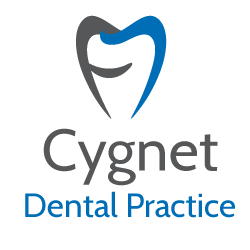Why Wisdom Teeth Can Sometimes Cause Problems

Our last teeth to arrive are also sometimes the most troublesome.
Third molars, more commonly known as ‘wisdom teeth’, usually arrive later than others and at a key time of development into adulthood, around the 17 to 25 year mark (hence ‘wisdom’). In some cases they may not always erupt as they should do which can cause problems. When this happens, it is important that they are seen by a dentist so that they can be examined to decide what the next steps to take should be.
If you are now using your tongue to see where your own molars are, it is possible that you don’t have any; not everyone does, while some only get one or two. If they erupt correctly, there should be no problems, but if they don’t, it is likely that some dental treatment will be needed.
Wisdom teeth problems
There are a number of issues associated with wisdom teeth and most of these revolve around them not fully erupting. This then leaves the teeth fully, or partially, beneath the gums. When this happens, pericoronitis (infection around a partially erupted tooth) may occur. This can cause significant discomfort for the patient and needs to be addressed.
Wisdom teeth can also cause overcrowding, and may push against other teeth, causing some crookedness to occur. Finally, as they are so far at the rear of the mouth, they can be very difficult to clean and tooth decay is quite possible unless special care is taken to clean them.
Symptoms
While some of us will be familiar with dental problems, such as a toothache, that seem to appear almost from nowhere, most symptoms start to appear gradually. This gives our Wickford patients the opportunity to have them checked out before they are in too much pain, or before the problem starts to affect other teeth. For example, in the case of wisdom teeth, impacted teeth can cause problems to the roots of nearby teeth.
If you notice any of the following symptoms then, please contact the Cygnet Dental Practice as soon as you can to make an appointment.
- Pain or discomfort, possibly swelling too, at the rear of the mouth
- Bad breath (halitosis)
- Difficulty opening the mouth (trismus)
- Headaches or earache which could be caused by pressure from the teeth
- Movement of the teeth, especially at the front of the mouth
If you notice any of these symptoms, please do have them checked as soon as possible
Treatment options
Having identified a problem with the third molars then, what options are available to address them?
The most simple option is just to monitor them. If a tooth has only partially erupted, the dentist might decide simply to wait and see what happens over the next few weeks. They might advise you to support this with pain medication to ease any discomfort. Sometimes, teeth just need a little extra time to erupt fully. This will be closely monitored and we encourage patients to contact us between appointments for that purpose if they feel that something is not right.
Unfortunately, if the tooth does not erupt fully, the most likely treatment is to extract the wisdom tooth. Before this happens though, x-rays and scans will be taken to determine the nature and severity of the problem. In most cases, a tooth extraction will be carried out by our Wickford dentist, but where there are complications or an anaesthetic is required, you may be referred to an oral surgeon to carry out the extraction.
Where a dentist carries this out, you will be given a local anaesthetic to minimise any discomfort that you might feel.
When the wisdom tooth that is causing a problem is fully erupted, this requires a standard extraction where the dentist will manipulate the tooth with special tools, loosening it from its socket before taking it out.
Where the tooth is not fully erupted, it may be necessary to make an incision into the gum to gain access. A little bone may be removed from around the tooth if necessary, and, in some cases, it may be decided to divide the tooth into sections for easier removal. It is very likely, once the tooth has been extracted, that you will require stitches for the area to heal.
We will provide detailed aftercare instructions following your treatment which we strongly recommend that you follow. We may also ask you to book a follow up appointment so that we can monitor your recovery.
Hopefully, anyone who is currently experiencing the eruption of their wisdom teeth will have a trouble free experience. For those where issues arise though, you can be sure that we are here to help you through it and to carry out any necessary treatment to rectify the problem.
If you suspect that there may be an issue with your third molars or any other dental problem and would like to make an appointment to see a dentist, please call the Cygnet Dental Practice on 01268 733078.
